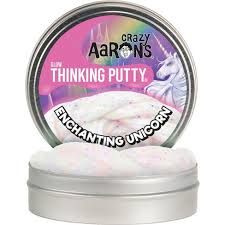Not one day goes by during the COVID-19 pandemic that I don’t empathize with all of the parents who have been thrust into the role of educator as they try to juggle jobs (or lack-there-of), laundry, decontamination rituals, and so many other responsibilities. I envision parents throughout the nation scrambling to transform their cluttered dining rooms into tidy classrooms while their children wide-eyed, long for their orderly classrooms and teachers.
While I empathize with every parent, I have even greater empathy for parents raising children with ADHD for obvious reasons. Don’t get me wrong. I’m a huge fan of kids with ADHD. It’s one of the reasons I specialized in ADHD years ago. I love the playful energy that children (and adults) with ADHD can bring to the table. But being their “home-school teacher” would be a whole other story. The chair-tipping, pen-tapping, urgent need for another bathroom break, sudden extreme thirst, and peppering of questions (e.g., How much longer???) – all of it can get really old, really fast.
As a mother of a college student with ADHD and as a psychologist who’s assessed hundreds of childeren with ADHD over the last 20 years, I do get it loud and clear.
This brings me to the reason I’m writing this blog. During a national crisis like the COVID-19 pandemic, I feel an obligation to share my tricks of the trade with every parent trying to create a successful learning environment for their child.
So, here goes:

Create a sensory rich environment
ADHD kids learn best when their sensory systems are activitated and satisfied. That’s why I always offer kids (and young adults) the following items during testing:

- Healthy snacks, like popcorn, mandarin oranges, and sliced apples or organic lolly pops
- The option to stand (but not lie down!)
- Sugar-free chewing gum
- A weighted lap blanket

- Spikey sensory rings (listen to my podcast episode entitled Samantha’s Story about how sensory tools help her maintain sanity during work meetings!)

- A favorite stuffed animal to squeeze 🙂

Start tasks below your child’s academic level and then work up
For example, if your child is in 3rd grade, yet struggles in math, then start math schoolwork at a 2nd grade level. Just remember, children want to do what is asked of them. ADHD kids just have a much harder time than the rest of us handling frustration and sustaining attention during difficult activities. Don’t forget that this is brain thing, not a personality flaw.
Create a list of school related tasks and allow your child to cross off items
Since children with ADHD tend to feel super overwhelmed with open-ended work (thus their repeated questioning, pleading, attempts at deal-making) they usually benefit from a list (preferably no more than 4 items on the list) that shows them exactly what they need to accomplish.
Here’s an example list:
- Complete every 4th math problem on page 10 of your workbook
- Read pages 6-12 in your history book
- Write 5 sentences about your favorite game or activity
As your child works, have them cross out completed tasks. This is super-satisfying. If you really want to get fancy, which I do, I have children pick out a new color each time they complete a task. I’ve learned that this increases excitement and thus participation.

Modify, don’t argue
Some of you may view this one as being overly accommodating, but hear me out. I have been doing this work for years. What I have learned is that children with ADHD typically cooperate when they understand the school work and/or can manage their anxiety well enough to engage in the task. That’s why I’m willing to modify my expectations. Here are are two examples:
- If Joey kicks his desk and puts his head down when I ask him to write 3 sentences about his favorite book, I might pause and take a deep breath myself.Then, I might ask him to tell me what he would like to write so I can be his scribe. As he dictates, I may comment on how cool it is to learn about his game, in part because I mean it, and in part because my compliments relax him further. Afterwards, I might ask Joey to share two things that stress him out about writing so I can understand him better. If writing is an ongoing challenge, I would consider hiring a writing tutor for Joey, as tutoring methodologies, like Orton Gillingham, can be real game changer for kids with weak writing skills.
- If you catch Madelaine playing Candy Crush on her phone instead of reading James and the Giant Peach for school, take a deep breath. Then, instead of insisting that she get her 30 minutes of reading time done NOW, modify the plan. For example, Madelaine could read 10 minutes of the book to you right then, listen to the remaining 20 minutes on audiobook, and then draw a picture of something that inspires her from the book.

Offer daily rewards
I encourage parents to offer daily and sometime even hourly rewards to their ADHD kids. Why? Because many people with ADHD have difficulty thinking too far into the future. They are much more focused on the present. That’s why short-term rewards are so motivating. I encourage parents to offer non-monetary rewards first, such as:
- An extra 30 minutes of a favorite video game
- A favorite home-cooked dessert
- A back rub
- An extension of bed-time by 30 minutes
- One less chore that day
- An extra bedtime story
If your child is in the solely motivated by cash group, here’s what I would suggest:
- Match financial rewards to your child’s age-range (e.g., 50 cents a day for a kindergartener, 1 dollar/ day for a 3rd grader, 5 dollars a day for a middle schooler)
- Put the money in a jar that your child can SEE.

3. Never take money that your child has earned out of the jar, even if your child breaks rules. Money earned stays. This will increase your child’s motivation and more positive behavior.
Well, that’s all for now. I wish each of you success and happiness.
Just like my favorite Sufi poet Rumi says,
“When you do things from your soul, you feel a river moving in you, a joy.”
Signing off,
Your friend and ADHD support,


